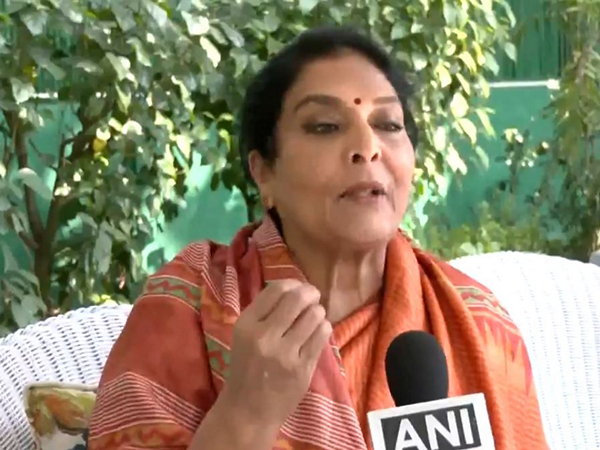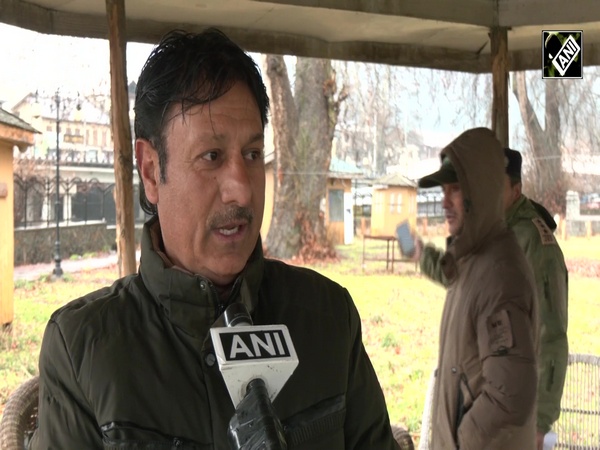Imran Khan government has promoted religious bigotry in Pakistan
Jul 01, 2021

Islamabad [Pakistan], July 1 : Pakistani Prime Minister Imran Khan and his party, the Pakistan Tehreek-e-Insaf (PTI), aggravated obscurantism, and unabashed bigotry since coming to power.
Farahnaz Ispahani, in an article in The Diplomat said that Pakistan is already known for having little tolerance for its religious minorities. Khan and the PTI have aggravated the problem.
Khan has attracted criticism for his recent refusal to condemn China's atrocities against Uyghur Muslims and for Khan's remarks blaming the rise in sexual violence on women wearing "very few clothes" and the fact that men are not "robots."
Khan also generated controversy last year by describing Osama bin Laden as a martyr, instead of calling him a terrorist, while speaking in Pakistan's Parliament.
Describing bin Laden as a martyr, linking rape to "vulgarity" and women's dress, and pretending that China's brutalities against Uyghurs is not a problem were not merely slips of the tongue; they reflect the Pakistani prime minister's worldview.
Khan has blamed victims before for inviting rape through their behavior. And he has gone to the extent of claiming that he does not know much about the Uyghur problem, wrote Ispahani.
Khan's reputation as a Westernized former cricketer and playboy sometimes misleads foreigners into assuming that he might represent a liberal vision for Pakistan. In fact, Khan and his PTI represent Pakistan's further descent into obscurantism and unabashed bigotry, reported The Diplomat.
Not long ago, remarks by Pakistan's Foreign Minister Shah Mehmood Qureshi to a CNN interviewer that Jews have "deep pockets" and "control the media" drew attention to the widespread anti-Semitism among the elites of the world's only Muslim country with nuclear weapons.
After Qureshi's interview with Bianna Golodryga, an Islamist member of Parliament called for the use of Pakistan's nuclear arsenal against Israel and another minister cited an anti-Semitic forgery to propose that Muslims should plan for world domination like the Jews, wrote Ispahani.
Pakistan is already reputed to have deeply polarised politics and little tolerance for its religious minorities. Khan and the PTI have aggravated the problem with their tendency to normalize prejudice and to use abusive language.
In the first two years of Khan's administration, 31 members of religious minorities were killed, 58 were injured, and 25 targeted by blasphemy cases. Pakistan's reality under Khan defies claims, made at the time of his election of office, that he represents an opportunity to reshape Pakistan's image, reported The Diplomat.
Any reshaping of Pakistan under Khan has been in the direction of indulging and endorsing various extremist prejudices. Even when the current ruling party was in opposition, one of its politicians created a political storm by using an anti-Christian slur in a provincial legislature.
Sixteen months into the government's term, a senator from Khan's party declared on a TV show that he and Khan considered the Ahmadiyya Muslim community as worthy of their curse, wrote Ispahani.
The senator also used a pejorative appellation for the Ahmadiyya. Neither the PTI nor the prime minister bothered to disassociate themselves from his statement.
Moreover, a leader of the fundamentalist Tehreek-e-Labbaik Pakistan (TLP), which recently rioted to demand the expulsion of the French ambassador over blasphemy against Islam by his countrymen, declared that "Pakistani Muslims will sacrifice their youth and lives, but they will not accept the filthy feet of Jews in Jerusalem."
This is a far cry from when Pakistan, after its birth in August 1947 as a homeland for South Asia's Muslims, was home to a religiously diverse community. Its then-capital, Karachi, boasted mosques of various Muslim denominations, several Catholic and Protestant churches, a Jewish synagogue, Parsi (Zoroastrian) fire temples, as well as Jain and Hindu temples devoted to various deities, reported The Diplomat.




















